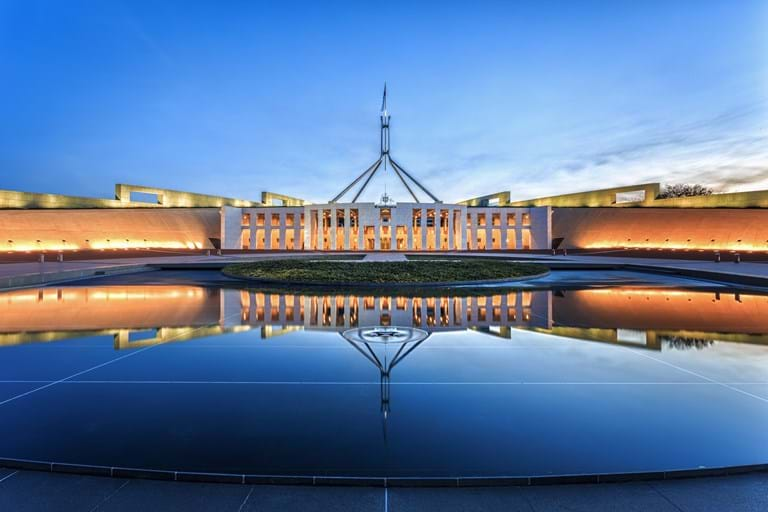Federal Budget Update 2019/20
Federal Budget Update 2019/20
This year’s Federal Budget is an ‘election budget’ with future tax cuts for all Australians, especially low and middle income earners. Overall, there were minimal changes to super proposed in the Budget, with minor changes to super contributions for older Australians.
We’ve summarised some of the key points from the Budget below, but remember these are subject to the passing of legislation.
- From 1 July 2022, the upper personal income tax threshold for the 19% tax rate will increase to $45,000.
- From 1 July 2024, the 32.5% tax rate will reduce to 30%.
- Increase to the tax offset for low and middle income earners.
- Increase to the age at which people can contribute to super without meeting the work test.
- A one-off energy assistance payment for people receiving government assistance.
Superannuation
From 1 July 2020, there will be no work test for people aged 65 and 66 when making concessional and non-concessional contributions. Currently, you need to work at least 40 hours over a 30 day period to contribute. Also, the three-year bring-forward for non-concessional contributions is proposed to be extended to people aged 65 and 66 which means they could contribute up to $300,000 in non-concessional and $25,000 concessional contributions in one year.
- If you have a super balance of below $6,000, administration and investment fees will be capped at 3%.
- From 1 July 2019, you will no longer be charged an exit fee.
- If your account has been inactive for 16 consecutive months your insurance cover will cease.
The proposal to ensure insurance is only offered on an opt-in basis for accounts with balances of less than $6,000 and new accounts belonging to members under the age of 25, did not pass into legislation. The Government will delay the start date for this measure until 1 October 2019.
Tax
- From 1 July 2022, the top threhold of the 19% tax bracket will increase from $41,000 to $45,000 and the low income tax offset (LITO) will increase from $645 to $700.
- From 1 July 2024, the 32.5% tax rate will reduce to 30%.
To help you estimate the tax benefits for your level of income, refer to the Government's online calculator.
The low and middle income tax offset (LMITO) will increase for the 2018/19 to 2021/22 financial years. After this, LMITO is not available. The maximum LMITO will increase from $530 to $1,080.
If you have a small or medium business, you can immediately deduct eligible assets costing less than $30,000. The assets must be first used or installed, ready for use, between 7:30pm (AEDT) on 2 April 2019 and 30 June 2020. Assets acquired between 29 January 2019 and before 7:30pm (AEDT) on 2 April 2019 are subject to a $25,000 threshold and is limited to small businesses. The instant asset write-off is expanded to medium businesses by increasing the annual turnover threshold from $10 million to $50 million. Certain assets are not eligible, for example, horticultural plants and in-house software.
From 1 July 2018, the Medicare levy low income thresholds will be increased to reflect movements in the consumer price index (CPI).
Social Security
A one-off Energy Assistance Payment of $75 for singles and $62.50 for each eligible member of a couple. To be eligible, you must be receiving a qualifying Government payment on 2 April 2019 and be resident in Australia. Qualifying payments are the Age Pension, Carer Payment, Disability Support Pension, Parenting Payment Single, the Veterans’ Service Pension and the Veterans’ Income Support supplement, Veterans’ disability payments, War Widow(er)’s Pension, and permanent impairment payments under the Military Rehabilitation and Compensation Act 2004 (including dependent partners) and the Safety, Rehabilitation and Compensation Act 1988.
Both former spouses and former de-facto partners of veterans will be able to continue to receive the partner service pension after their relationship with their veteran partner has ended, including situations where the relationship has ended because of family or domestic violence.
Aged Care
As previously announced on 10 February 2019, the Government will provide funding for an additional 10,000 Home Care places over five years from 2018/19.
This information is issued by RI Advice Group Pty Ltd (RI Advice), ABN 23 001 774 125, which holds Australian Financial Services Licence Number 238429 and is a summary of RI Advice ‘s understanding of the proposed Federal Budget 2019/20 changes announced on 2 April 2019. RI Advice is a company within the IOOF Group of companies, consisting of IOOF Holdings Limited ABN 49 100 103 722 and its related bodies corporate. The changes are subject to the passing of legislation and, accordingly, may not become law or may change. Please note that the information is based on RI Advice’s interpretation of the proposed changes as at the date of issue of this document. Accordingly, you must not do or refrain from doing anything in reliance on this information without obtaining suitable professional advice. In addition, the information is of a general nature and may not be relevant to your/your client’s individual circumstances. Before making any investment decision you must consider the relevant PDS, available on request by calling RI Advice. This information does not consider your personal circumstances and is general advice only. You should not act on any recommendation without obtaining professional financial advice specific to your circumstances. If you wish to opt out of future communications, please contact us.
RI Advice Group Pty Ltd ABN 23 001 774 125, AFSL 238429. The information (including taxation) is general in nature and may not be relevant to your individual circumstances. You should refrain from doing anything in reliance on this information without first obtaining suitable professional advice. You should obtain and consider a Product Disclosure Statement (PDS) before making any decision to acquire a product



